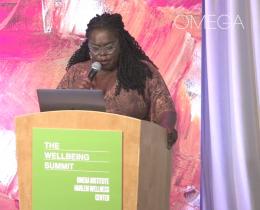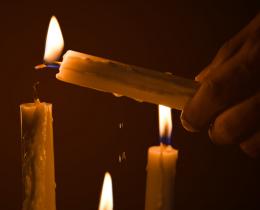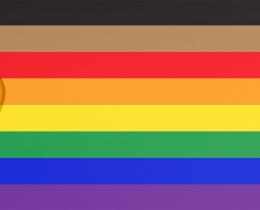Marianne: You have been a part of Omega’s Women & Power gatherings since the very beginning. What was your experience of the “What’s Possible” gathering?
Eve: There was a tremendous sense of unity. It felt like speakers and participants were equally engaged and equally empowered. I was moved by the kind of energetic hunger and clarity in women—this need to go further and do more and be bolder. There just seemed like a lot less fear in general and a lot more willingness to be disruptive and daring.
Marianne: Did you also get the sense, because I know I feel this right now, that there's a bit more urgency?
Eve: I think many of us feel we are on the verge of something. That this is going to be a time where we either go forward in a big way or we get pushed back. There's no question about it. Everywhere I go women are rising up and speaking out in greater numbers and very effectively.
Marianne: What model of power and leadership do you want to see?
Eve: I think I’m less interested now in “power” than I am in freedom. I have been asking deep questions about the meaning of power, the nature of power. One of the things we're working on with the One Billion Rising campaign is to let everybody own it and have it and use it the way they need to use it, not worrying about having our name on it, or people checking in with us. That's the power I'm interested in—a kind of energetic power that gets to be shared and gets to circulate, where everybody gets to feed off it, like wind.
Marianne: Sometimes people don't know how to get involved—even if they find their voice, they may not know what to do with it, especially given that our political system may not be the best channel to make change right now. Do you have any advice for women about this?
Eve: I've always felt the best way to make change is to work with the grassroots, and to focus locally where you are in your own community. I once gave a speech in New Jersey and there were all these fabulous women there who have opened shelters and been working on the front lines for years with the women in their community, helping them to get out of harm's way and supporting them on their road back to recovery, whether it's from homelessness or abuse or poverty. There's plenty to do everywhere. When people say they don't know how to direct their energy, I want to say, “walk outside.” People are suffering everywhere. There are people looking for work, and people who need health care, people desperate to talk and tell their story. The world changes from the ground up.
A recent study published in the American Political Science Review found that the autonomous feminist movements are the key to change on violence against women. This is a study that’s been conducted over four decades in 70 countries and it revealed the mobilization of feminist movements is more important for change than the wealth of nations, left-wing political parties, or the number of women politicians. I think we have always known this, but it is great to have it validated with data.
Marianne: And how does One Billion Rising fit into this movement?
Eve: Hopefully it will be one of the largest—the largest—global volunteer actions we've ever seen on violence against women. Maybe on anything! We're inviting one billion women who've been raped and beaten, and all the men who love them, to walk out of their jobs and their schools and their offices to dance on February 14, 2013. In doing that, we’ll bring violence against women center stage and get the world to understand that it is the mother issue. That until women are free and safe they cannot prosper, they cannot grow, they cannot come into their own. I'm so thrilled to see the response. It's been incredible. More than 13,000 groups have signed up from 176 countries. There are leaders, there are prime ministers, and city councils, and mayors, and bishops, and tons of unions, and migrant workers, and indigenous women. We're seeing something we've never seen before.
Marianne: Your play, I Am an Emotional Creature, is about to debut in New York City. We often talk about women and forget that a lot of this starts in girlhood. How does empowering girls fit in into the larger picture?
Eve: Everyone is essentially brought up not to be a girl, right? Men are brought up not to be girls. Boys and girls are brought up that way, so it must be very powerful to be a girl! What is it about being a girl that has everyone so scared? I think everybody has a girl inside them, men and women have the qualities of intensity, emotion, wit, compassion, revolutionary zeal, originality, and heart. Some people have more girl, some people have less girl, but all of us have been taught to shut our girl down. If you look at girls themselves around the world, they are such a potent force for change and good, for questioning, for disrupting, and for resisting, and yet they are under siege in so many places. Everywhere. Whether they're being told that they should starve themselves to please the fashion setters, or whether they're being told to cover up or shut themselves down.
Marianne: What inspired you to do I Am an Emotional Creature?
Eve: I've been traveling all these years in the world and witnessing girls and seeing their struggles and their obstacles, but also seeing their enormous resilience and brilliance and energy and realizing: what if these girls were free? What if they could be themselves? What if they weren't spending their days pleasing, but were actually in their authentic beings, listening and following their own desires and voices? What would the world look like?
Marianne: What has it been like bringing it to the stage?
Eve: Wonderful. Everything about this experience has been so positive. We began in South Africa, which was such a joyous, rich, rich experience, and we worked with brilliant girls there. We worked at the Market Theater, which was the main anti-Apartheid theater, which has such an inspiring and radical history. The girls brought so much of themselves to the play and we really were able to find so much of the piece there in the rhythms and in the heartbeat and the soul of Africa. Then we brought it to Paris, where we added a little melancholy. Then we brought it to Berkeley and now it’s taken a whole new step, bringing it to New York, and I think with each incarnation, the play's gone deeper and just added the scents and feel and the colors from everywhere we've been. It’s been such a joy to watch the actresses grow and watch them step into their power and their confidence and their bodies. It’s been a metaphor for what I hope the play will do for all girls!
Marianne: As you know, I have two daughters, so I'm very aware of all of the influences that are out there. What changes do you think need to be made on a societal level to support girls in terms of everything you're talking about?
Eve: I think we have to actually trust girls and stop telling them that they have to be someone other than they are. One of the things I'm discovering in I Am an Emotional Creature is that the more girls feel confident in themselves, the more they are able to express who they really are. I think we have to find situations where girls find their own voices. We have to help girls find activities that fulfill their deepest selves. If you live in a society that tells you your whole point is to be pretty and skinny then you’ll spend your days working to achieve that. But if you're brought up in a world that tells you that your point is to make the world better and to contribute and to transform consciousness then you will go and work on achieving that.
Marianne: The play is called I Am an Emotional Creature and you were talking before about us all having an inner girl, even men and boys, and this whole idea of girlhood as a metaphor, and the importance of feeling our emotions. Can you talk a little bit more about that?
Eve: I think the heart's gotten a really bad rap. I think we're constantly belittling the heart and putting the heart down and saying that emotions can't be trusted and facts and data are what's important. Here's what I think: I think both are important. And I think you can have all the data you want, but if your heart isn't engaged and if your being isn't connected to what you're doing, nothing's ever going to change. There are all these studies being done about the intelligence of the heart and how much the heart knows and how we devalue it and we undermine it. My heart has led me into the best things—it led me to Congo. It led me to feel horrified and sorrowful and outraged by what was happening to women there. And that feeling got me to engage and struggle and fight with the women of Congo.
Marianne: What was your own personal experience of girlhood like? Were you always this in touch with your voice and your emotions?
Eve: I was always told from the time I could remember that I was too intense, too emotional, too dramatic. They would call me Sarah Bernhardt and it was really a put-down, and I didn't know who she was, but I knew I wanted to be her. I was always being told I was too much. Maybe that wasn’t true, maybe the people around me just needed to be more.
Marianne: If you had the attention of all the girls on the planet right now, what would be the one message you would most want to convey?
Eve: To change the verb. Most girls spend so much of their lives pleasing somebody, whether it's fashion setters, or their girlfriends, or boys, where they go too fast when they don't want to go fast. So much of our lives are spent trying to make someone happy other than ourselves and that verb has robbed girls and robbed all of us of our greatest energy and creativity. It has prevented us from taking risks, prevented us from speaking the truth, and prevented us from standing up against tyranny and war and oppression because we're afraid of being exiled. If I was going to say anything to girls, it's to find a new verb. Dance, resist, invent, create, envision, protest—but stop pleasing.
Marianne: You've had this relentless, very intense passion and energy that's accomplished amazing things across the planet. What do you consider the source of your fuel? What keeps you going even though this has not necessarily been the easiest road you could have taken?
Eve: I don't know if I know the answer to that. I think I essentially believe that we can shift what's going on here. And I love women, I love humans, I love life, I love this planet, and I really believe all of the above are worth fighting for. The way I survived my own little hell on this planet was believing that there was another world out there that was coming. I still believe it. Being engaged in that struggle is terribly energizing. I can't imagine what else I would be doing here.
Marianne: The theme of this interview series is “What’s Possible.” What do you think is possible when women and girls are engaged?
Eve: I think everything's possible. I believe we'll get a billion women to rise. I believe that rising will shift consciousness and laws and culture and this current paradigm. I believe if women believe that they can be free, that they can have a voice, that they can do whatever they want, and that they have the right and the mandate to fight for it, anything can happen. But part of it is breaking through our own sense of limitation and our fear that if we step forward people won't like us. And I think that's the main thing we really have to break through—our own sense of limitations, what's been programmed into us—because that programming is very powerful.



